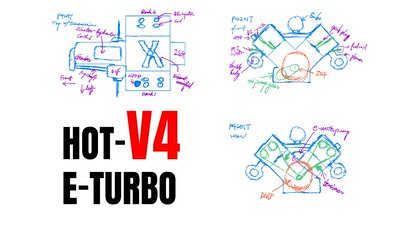techParis
Not What You Thought: Blockchain May Support International Trade, but Bitcoin Won't
Some major players in international trade and investment may wish to decouple from the US dollar. A blockchain-based, supranational currency mechanism will o...
Published by Dr Jiulin Teng on 25 May 2020 · Updated on 25 Jul 2021

I am not known for being politically-correct; otherwise, I should be too busy counting money to write a blog now. So, I'll just say it: Most people are not as smart as they think they are. As such, some are misled to believe that one or two of the "cryptocurrencies" floating around today will develop any realistic use case. More are driven by greed, and think there will be "bigger fools" to catch their bags.
Recently, I have finally realized what a realistic and probable use case of blockchain is—it is quite different from the hopes and dreams repeated ad nauseum on social media, and Bitcoin has nothing to do with it.
Exuberant Privilege & USD
Valéry Giscard d'Estaing, the French Minister of Finance in the 1960s, coined the term "exuberant privilege" to refer to the fact that the US dollar is the international reserve currency and, as a result, the US enjoys unique advantage in international trade and investment.
Since the "Nixon Shock" that decoupled dollar from gold, the artificial limits placed on the dollar grew increasingly irrelevant, and the Federal Reserve has gained unprecedented power in projecting well beyond the boarder of the US. It is beyond the scope of this article to discuss this further. What is worth noting here is that the dominance of US dollar in global trade and investment has increased, thanks largely to globalization.
Decoupling from the USD
In recent years, the US dollar has been further weaponized. Several oil-producing countries have seen their fortune gravely impacted as a result. The trade war that began not long ago and the increasingly hawkish postures of the US right highlight the importance for countries not in US's good grace to decouple their international trade and investment from the US dollar.
This is easier said than done. The US dollar comprises over 60% of foreign exchange reserves today, and over 70% of international trade is settled in it. The prestige and broad acceptance of the USD is truly unparalleled. No other national currency comes close, and while some may wish for a "decoupling" from the USD there has been no viable alternative: Indeed, even countries who dislike the current situation largely prefer to take the dollar instead of other, less robust currencies.
How Does Blockchain Fit In?
A number of major economies in international trade and investment have long expressed deep interests in the blockchain technology. Until recently, I was puzzled unsure why this is the case. Now, I am almost certain that they are looking at co-creating a global, "supra-national" currency or currency mechanism for trade and investment. (Let's call it Supra.) The fundamental characteristics of blockchain as transparent and robust are why it is suitable:
- No single country would possess the exuberant privilege, and no single country could control international trade and investment—a result that is more palatable than any other alternative.
- Transactions will be fully transparent, reducing the anxiety of many and tightening the control by governments.
- Unlike a monetary union, like the Euro, Supra can be made to exist purely for global trade and investment, thus avoiding complications that the eurozone has seen.
I will discuss this further in the near future in another article.



